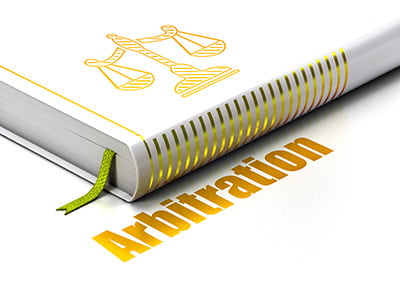Enforcing Foreign Awards in Qatar
 Arbitration has seen a tremendous increase in popularity in Qatar in recent years, including both national and international clients. The number of arbitration cases held in Qatar is on the rise, with many of them being international, with at least one party headquartered outside the country.
Arbitration has seen a tremendous increase in popularity in Qatar in recent years, including both national and international clients. The number of arbitration cases held in Qatar is on the rise, with many of them being international, with at least one party headquartered outside the country.
To under the enforcement of foreign arbitral awards in Qatar, let us see what arbitration is; alternative Dispute Settlement, often known as suitable or amicable dispute resolution, is a method of resolving disputes between parties outside of the courtroom. While courts decide the outcome of a lawsuit, alternative dispute resolution (ADR) settles the conflict effectively, efficiently, and pleasantly. Arbitration is a popular type of alternative dispute resolution. It is frequently utilized in commercial disputes. Arbitration can be requested by parties that have included an arbitration clause in their contract. One key difference between arbitration and mediation is that one of the parties cannot withdraw unilaterally from arbitration. To ensure that no party gains an unfair advantage, the parties can choose the venue, the language of the procedures, and the applicable law.
It is difficult to accurately estimate trends in commercial arbitration since there are no publicly available records on institutional and ad hoc arbitrations conducted or executed in Qatar or having Qatar law as the procedural and substantive legislation. On the other hand, arbitration is commonly employed in the construction industry, where a significant percentage of the contractors are foreign firms.
In Qatar, arbitration and post-arbitration processes are controlled by the following laws:
- the Law of Arbitration in Civil and Commercial Matters (the Qatari Arbitration Law) – based principally on the UNCITRAL Model Law (came into force via Law No. 2 of 2017 Promulgating the Civil and Commercial Arbitration Law – Issuing the Law of Arbitration Civil and Commercial Matters)
- the relevant provisions of the Civil and Commercial Procedures Law (CCPL) that apply to arbitration and post-arbitration procedures are not repealed by Law No. 2 of 2017 (CCPL Articles 190 to 210 were repealed by Law No. 2 of 2017) and do not conflict with the Qatari Arbitration Law; and
- The New York Convention
Unless the parties agree otherwise, the award must be written and signed by the arbitrator or, if there is more than one arbitrator, the majority of the arbitrators, unless the parties agree otherwise. The reason for any omitted signatures must be stated in the award (awards on procedural matters may be issued by the president of the tribunal if authorized to do so by the parties or all members of the arbitral tribunal). Unless the parties agree differently, the award must specify the grounds for the decision, unless the applicable legal laws do not require it, or if the judgment is based on the parties' settlement. It must also include the parties' names and addresses, the arbitrators' nationalities, names, addresses, and capacities, a copy of the arbitration agreement, the date the award was issued, and the arbitration seat. The award must include a summary of the parties' requests, statements, documents, and the award ruling and reasons if they are needed to be mentioned. Lastly, if the parties agree otherwise, the award must indicate the arbitration costs and expenses, the party responsible for paying fees, and the payment processes.
Even though there is no explicit legal requirement in the abolished arbitration law or any other law or the Qatari constitution, several court decisions have been issued under the now-repealed parts of the 'old' arbitration law, ruling that Qatar-seated arbitral awards must be issued in the name of His Royal Highness, the Emir of the State of Qatar. Because those judgments also mentioned Article 69 of the Procedural Code, which was not specifically repealed by the new arbitration statute, it is unclear how widespread the practice of seeking domestic awards in His Highness the Emir's name will persist.
Every party to an arbitral award is entitled to a copy within 15 days of the award's issuing. The tribunal is obligated to submit an electronic record to the administrative department of the ministry responsible for arbitration matters within two weeks of the award's release. In practice, we know that arbitral tribunals appear to comply with this obligation. The Ministry of Justice's arbitration department is managing this specific requirement as outlined in Article 31(11) of the Law. Though it is not legally related to arbitral awards, it is worth noting that 'interest' as a means of monetary restitution is only recoverable under Qatar law if the parties agree. Furthermore, costs are left completely to the tribunal's discretion unless the parties agree otherwise.
Rules controlling an award's amendment, clarification, or correction
 Only if the parties agree otherwise, any party may refer the arbitral tribunal to redress any material computation or typographical errors that could have happened in the arbitral award within seven days of receipt, or within the period agreed by the parties, provided that it notifies the other parties, or to give an interpretation of a specific point or part of the arbitral award if so agreed by the parties. If the arbitral tribunal believes the request is legitimate, it must correct or provide the interpretation in writing within seven days of receiving the request. The final arbitral ruling will include the interpretation or modification. Within seven days of the date of publication, the arbitral tribunal may fix any major computation or typographical errors in the arbitral award on its motion, given it notify the parties.
Only if the parties agree otherwise, any party may refer the arbitral tribunal to redress any material computation or typographical errors that could have happened in the arbitral award within seven days of receipt, or within the period agreed by the parties, provided that it notifies the other parties, or to give an interpretation of a specific point or part of the arbitral award if so agreed by the parties. If the arbitral tribunal believes the request is legitimate, it must correct or provide the interpretation in writing within seven days of receiving the request. The final arbitral ruling will include the interpretation or modification. Within seven days of the date of publication, the arbitral tribunal may fix any major computation or typographical errors in the arbitral award on its motion, given it notify the parties.
Unless the parties agree otherwise, any party may request the arbitral tribunal to issue a supplemental arbitral award for requests presented during the arbitration proceedings but excluded from the award within seven days of receipt of the arbitral award, providing it informs the other party. If the tribunal finds the request reasonable, the supplementary award will be issued within seven days of the petition's submission. Suppose it is established that the arbitral tribunal that issued the award will be unable to reassemble to reconsider the request to amend, explain, or decide on the omitted requests. In that case, the subject might be brought before the competent court for resolution unless the parties agree otherwise.
Appeals from an award
An arbitral award would not be challenged in any way other than by setting it aside in a competent court. By default, the Civil and Commercial Arbitration Disputes Circuit of the Court of Appeals (i.e., local courts) or the Court of First Instance of the Civil and Commercial Court of the Qatar Financial Centre (i.e., QFC courts) are the competent courts for setting aside an award, as specified in the parties' agreement.
The Qatar Arbitration Law specifies only a few circumstances in which an arbitral judgment may be set aside. A request to set aside an award will not be considered unless the petitioner can demonstrate the following:
- Any party to the agreement was incompetent or incapacitated at the time of its conclusion, or the arbitration agreement is illegal under the governing law or by default under Qatari Arbitration Law;
- The party filing the motion to set aside was not provided appropriate notice of the appointment of arbitrators or the arbitral procedures or was unable to submit its defense due to circumstances beyond its control.
- If it is possible to separate the parts of the award that are related to the arbitration from the parts that are not related to arbitration, only the latter parts shall be set aside), or the award has made the decision issues are outside the scope of the arbitration agreement or in excess thereof (if it is possible to separate the parts of the award that are related to the arbitration from the parts that are not related to arbitration, only the latter parts shall be set aside),
 In the end, it can be said that, While it is unclear how Qatari courts would resolve specific difficulties in future cases, recent petitions to set aside arbitration verdicts before Qatari courts suggest Qatar's desire to become a pro-arbitration jurisdiction. The Qatari courts have modified their attitude to arbitration since these contentious judgments. Setting aside applications of arbitration judgments in Qatari courts has become increasingly difficult in recent years. Qatar's future as a pro-arbitration center is unquestionably bright.
In the end, it can be said that, While it is unclear how Qatari courts would resolve specific difficulties in future cases, recent petitions to set aside arbitration verdicts before Qatari courts suggest Qatar's desire to become a pro-arbitration jurisdiction. The Qatari courts have modified their attitude to arbitration since these contentious judgments. Setting aside applications of arbitration judgments in Qatari courts has become increasingly difficult in recent years. Qatar's future as a pro-arbitration center is unquestionably bright.
 English
English
 عربي
عربي Русский
Русский 官话
官话 português
português
 Türk
Türk 







.jpg&w=120&h=80&zc=1)


